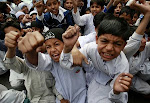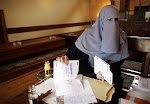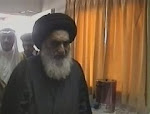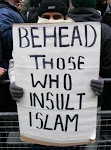There's one particularly disturbing aspect to this very likely scenario: “The geographic proximity of Pakistan’s nuclear programme to these sophisticated terrorists and the recent history of illicit transfers of material and know-how pose a unique threat.”
Report says fragile state institutions, weak leadership and inadequate resources limit ability of Islamabad to fight militancy.
LAHORE: If Talibanisation of Pakistan continues at the current pace, the next generation of the world’s most dangerous terrorists will be born, indoctrinated, and trained in Pakistan, the Council on Foreign Relations, an American think tank, warned on Tuesday.
“Today, Al Qaeda’s top leadership is most likely based in Pakistan, along with the top Taliban leaders,” the report – titled From AfPak to PakAf: A Response to the New US Strategy for South Asia – said.[...]
Groups like the banned Jaish-e-Muhammad and Lashkar-e-Tayyaba, according to the report, are well resourced and interconnected and some of these appear to retain influence in state institutions and enjoy public sympathy on account of social services.
It says over the past two years, the security environment in Afghanistan and Pakistan has taken a significant turn for the worse destabilising the Pashtun belt in southern and eastern Afghanistan as well as western Pakistan.
“At the same time, a range of other violent actors from Punjabi anti-Indian extremists to Central Asian warlords-operate in the non-Pashtun areas of Pakistan and Afghanistan,” according to the report, adding Pakistan and Afghanistan offer these groups an unusually hospitable environment, one that complicates and magnifies the danger.
The report by Daniel Markey also says that: “The geographic proximity of Pakistan’s nuclear programme to these sophisticated terrorists and the recent history of illicit transfers of material and know-how pose a unique threat.”
The report concludes that fragile state institutions, weak leadership, and inadequate resources limit the ability of Islamabad and Kabul to fight militancy in the near term or to foster moderation.
If you think Iran with nukes is bad, this is worst.
12 years ago






















No comments:
Post a Comment